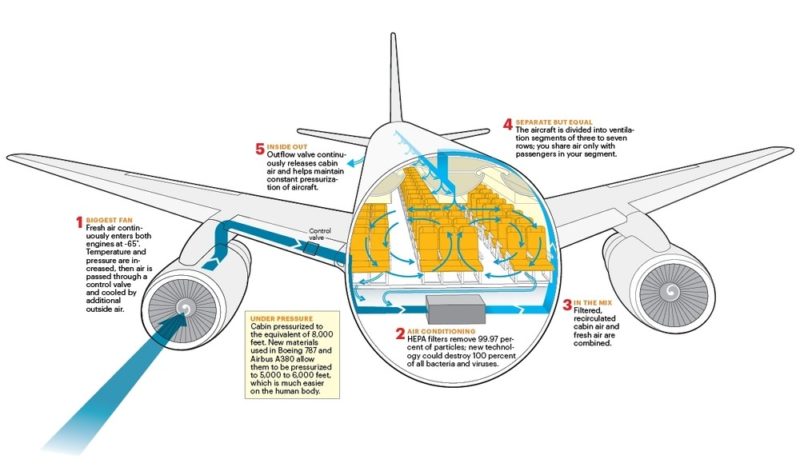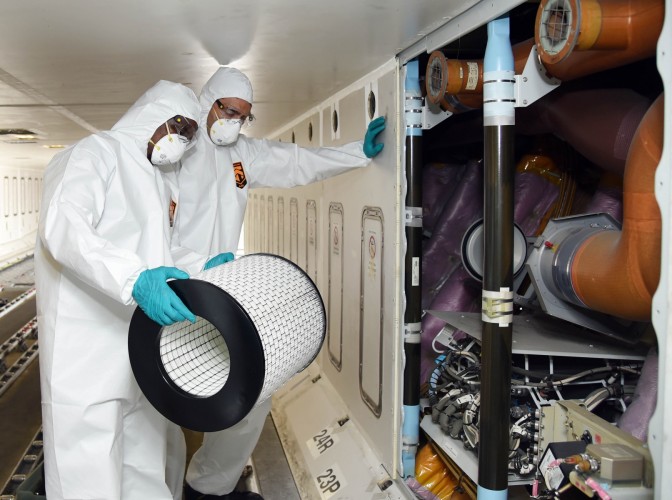The European Union Aviation Safety Agency (EASA) issued a Safety Information Bulletin (SIB) advising commercial aircraft airlines to adopt new procedures, these relate to the air-conditioning system in order to control the spread of the COVID-19.
According to EASA, High-Efficiency Particulate Air (HEPA) filters have demonstrated good performance with particles of the COVID-19 virus size (approximately 70-120 nm).
“On all passenger flights, aircraft operators employing recirculation of cabin air, are recommended either to install and employ HEPA filters or to avoid the use of cabin air recirculation completely, during the COVID-19 outbreak.”
EASA also states that airlines should consider supplementary procedures to periodically turn off recirculation fans, to accelerate cabin air exchange.

The safety agency also issued a series of operational recommendations to operators of cargo and passenger aircraft, in response to the COVID-19.
Airlines should provide a sufficient supply of face masks for the intended operation, these should be worn at all times by crew members having direct contact with passengers or non-crew individuals.
The face masks should be replaced regularly, at intervals not exceeding 4 hours or as recommended by the manufacturer.
Hand disinfectants should be provided in all lavatories, with crews informed that frequent hand-washing is the “preferred and most efficient” preventative measure to limit transmission. But this might be restricted by water-tank capacity, in which case single-use gloves should be employed.
Airlines should also consider spacing passengers throughout the cabin, allowing a degree of separation between them, for example in a row of 3 seats the middle seat should be empty. If this separation is not possible, the use of masks for the passengers should be considered.
“Other personnel, including ground handling and medical personnel, if not necessary for the completion of their task, should not board the aircraft and should make use of electronic documents wherever possible.”


